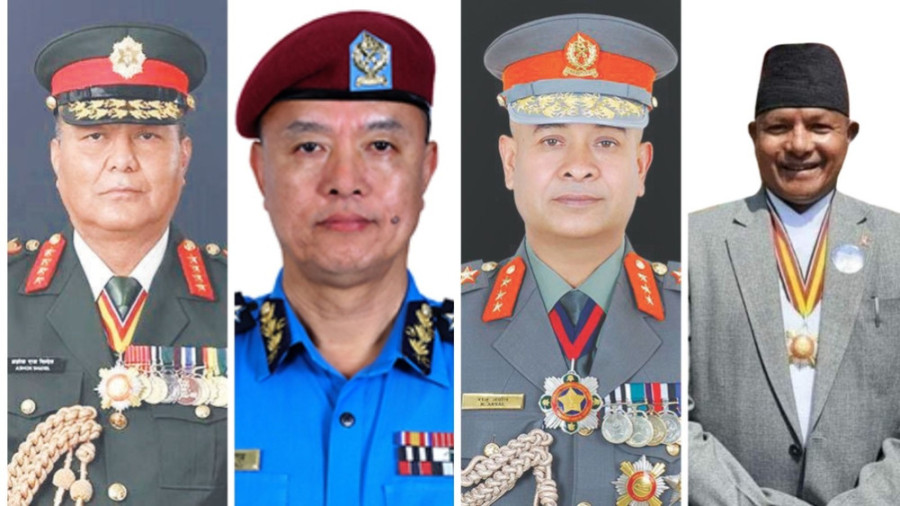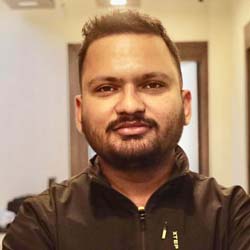National
Security chiefs advise caution as Prime Minister Karki reviews pressure to arrest KP Oli and Ramesh Lekhak
Heads of security agencies urged the government to act within the legal framework amid growing calls to arrest former prime minister Oli and ex-home minister Lekhak.
Gaurav Pokharel
Prime Minister Sushila Karki held a high-level security meeting at her official residence in Baluwatar on Monday night to assess the country’s evolving security challenges amid mounting pressure to arrest immediate past prime minister KP Sharma Oli and erstwhile home minister Ramesh Lekhak over the Gen Z crackdown.
The meeting, which began at 10 pm and continued until 3 am on Tuesday, was attended by Home Minister Om Prakash Aryal, Nepali Army chief Ashok Raj Sigdel, Inspector General of Nepal Police Chandrakuber Khapung, Inspector General of the Armed Police Force Raju Aryal and Chief of the National Investigation Department Tekendra Karki, among other senior officials.
Discussions centred on the implications of detaining or not detaining the two leaders [Oli and Lekhak], the risk of renewed violence, attempts to disturb religious harmony, and preparations for the parliamentary elections scheduled for March 5, 2026.
According to officials present, security chiefs unanimously advised the government to proceed only within legal boundaries, cautioning that premature arrests could destabilise the fragile political and communal environment.
Home Minister Aryal reportedly warned that “action outside the legal framework could trigger more bloodshed and disrupt the election climate.”
Both IGP Khapung and IGP Aryal echoed the concern, noting that politically motivated arrests might invite retaliatory complaints against serving officials, according to the sources privy to the discussion.
Army Chief Sigdel reportedly highlighted the potential for “forces with divisive agendas” to exploit ongoing tensions, referring to recent Hindu-Muslim clashes in Dhanusha’s Janakpurdham and rising communal sensitivities in Nepalgunj.
Officials briefed the prime minister that both scenarios—arresting or refraining from arresting the two leaders—carried security risks. Arrests could provoke Oli’s CPN-UML and the Nepali Congress to mobilise on the streets, while inaction might embolden agitators demanding swift accountability for the violence during the Gen Z protests.
The meeting concluded without a concrete decision, leaning instead towards a “wait-and-see” approach. Following the discussion, police on Tuesday received but did not register the complaint filed by Gen Z activists against Oli and Lekhak, forwarding it instead to the high-level judicial inquiry commission led by former judge Gauri Bahadur Karki.
The Gen Z movement, which turned violent after police gunfire killed 21 demonstrators on September 8, left scores of people dead over two days of violent clashes that saw mobs storming government and judicial offices in Kathmandu and beyond. The death toll reached 75.
Security agencies now fear that further political provocation or arbitrary arrests could inflame tensions nationwide just as the country prepares for elections.




 17.12°C Kathmandu
17.12°C Kathmandu














